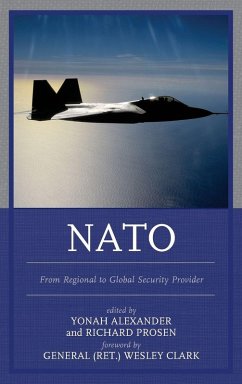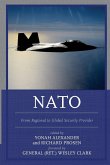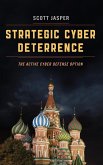The purpose of NATO: From Regional to Global Security Provider is to provide a comprehensive analysis of the Alliance's new vision (the new Strategic Concept) and common security impact - associated tasks to be undertaken within a short and longer term time horizon. The book serves as a relevant and timely study of the most pressing issues facing NATO today - including recent lessons gained. It provides recommendations for consideration and further discussion (i.e., the "what" and the "how" regarding future policy options for the North Atlantic Alliance). The intended audience includes international security policy-makers, government officials, elected leaders, academics, interested professionals, civil society and members of the public. Specifically, the book focuses on six topic areas. Part I, the Introduction, relates to conceptual and organizational changes, membership expansion and enlargement. Part II consists of emerging security challenges, including terrorism, piracy, homeland threats, cyber defense and information warfare, energy security, non-proliferation and countering WMD. Part III incorporates national and regional challenges such as the Balkans, Iraq, Afghanistan/Pakistan, the Horn of Africa, North Africa and the Middle East. Part IV deals with military and non-military assets. It integrates capability development, burden sharing, common funding, ballistic missile defenses and the phased adaptive approach, non-strategic nuclear weapons, and a broad-based comprehensive approach to security. Part V covers multifaceted collaborative relationships between NATO and various governmental, inter-governmental, and non-governmental bodies. This section incorporates outreach and engagement with Russia, India, Pakistan, and China, as well as with other non-NATO countries, the Mediterranean Dialogue (MD), and the Istanbul Cooperation Initiative (ICI). Formal and informal linkages with the EU, OSCE, and the UN are also essential features of such a cooperative activity. Additionally, the expanding participation of civil society and growing involvement of new key NATO interlocutors (e.g., NGOs, academics) have created new international partnering opportunities as a means of bolstering global security through innovative public-private partnerships. Part VI includes a Summary and Conclusions.
Hinweis: Dieser Artikel kann nur an eine deutsche Lieferadresse ausgeliefert werden.
Hinweis: Dieser Artikel kann nur an eine deutsche Lieferadresse ausgeliefert werden.








